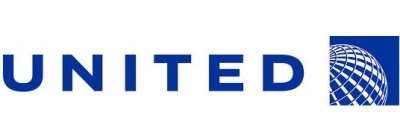Dr. Jenny Wang Discusses Asian Americans and Importance of Mental Health in Houston Book Launch
HOUSTON, May 9, 2022 — Asia Society Texas was honored to host Dr. Jenny T. Wang for the Houston launch of her new book, Permission to Come Home, which speaks to the importance of mental and emotional health for Asian American and immigrant communities. In conversation with KHOU 11 News anchor and reporter Rekha Muddaraj, Dr. Wang shared personal stories of her journey with mental health practice while touching on the impact of intergenerational trauma, the role of anger, and the importance of setting boundaries.
Immigrant mindsets and intergenerational trauma
While acknowledging that the Asian American diaspora is diverse and complex, Dr. Wang said she believes there are some commonalities in the experiences of Asian American immigrants and children of immigrants. She said the community can often have a strong aversion to failure, seeing it as a source of shame. Given that immigrants to the U.S. often face hardship and incredible obstacles, Dr. Wang said that these experiences can result in a desire to avoid risks and pursue achievement and success. However, she noted that failure is how we grow, and that shame is dangerous for mental health because it leads us to shut ourselves off, pushes us into secrecy, and drives us into self-sabotaging behavior. She underscored the need to open up about failure and shame in our communities, which also helps circumvent the model minority myth around Asian Americans — a myth that is harmful by leaving the needs of the community unacknowledged and unmet.
Dr. Wang added that the immigrant experience often includes unprocessed trauma across generations that sometimes manifests as toxic behavior such as alcoholism, abuse, or even simply a lack of attunement between parent and child. For instance, Dr. Wang said that immigrant parents often view strength as holding back emotions so that they don’t interfere with daily life — but challenged the audience on whether that mindset serves our current generation. She said that becoming aware of the existence of trauma and acknowledging it will help our generation heal, which then gives our parents’ generation a chance to heal as well.
Permission to set and acknowledge boundaries
In her book, Dr. Wang gives readers the permission to rage and to say no, which are both related to the importance of setting boundaries. While anger is looked down upon culturally, Dr. Wang indicated that anger is an emotion that serves a purpose. As an example, she said the rising incidents of anti-Asian hate makes us angry — so how do we utilize that? She explained that anger is a reaction to someone crossing a boundary, and the emotion is what galvanizes us to express ourselves; however, the experience of anger as an emotion is different from the expression of anger, which should be regulated. Dr. Wang noted that avoiding anger removes the chance for us to learn how to resolve conflicts and to fully understand what the anger is trying to protect us from.
As for permission to say no, she explained that doing so reinforces boundaries that allow us to preserve our resources — our emotional well — so we are not depleted. According to Dr. Wang, boundaries are for teaching people we intend to keep in our lives how to treat us well, so that we can be there for them in return. Saying no helps enforce boundaries through communication, she said, but boundaries also need to be enforced through behavior — though she acknowledged that boundaries look different across countries, cultures, and generations.
Help Us Build a More Inclusive World
Seeking help, finding rest, and coming home
Dr. Wang said she believed the pandemic exacerbated mental health issues, but that a silver lining was that it also allowed us to slow down and begin to notice that these issues needed to be addressed. She was encouraged by the number of people who found therapists for the first time over the past two years, but also pointed out that therapy is not the only way to healing. There are various cultural practices such as mindfulness and meditation that can help, and attuning with each other can also be healing.
It is important to rest and care for ourselves, she said, sharing that she also set boundaries for herself and her popular social media account @asiansformentalhealth. She said the antidote to burnout — a combination of emotional exhaustion and skepticism that anything can be done to change things for the better — is to activate locally, in community with those around us. That is how we “come home,” she said, by creating a place for ourselves, collectively and individually.
Asia Society hosts today's leading voices, providing commentary on events in news, society, and culture. Opinions expressed do not necessarily reflect Asia Society views.
Asia Society Texas Business & Policy Programs, Endowed by
Huffington Foundation
Business and Policy programs at Asia Society Texas are presented by Bank of America, Muffet Blake, ConocoPhillips, ExxonMobil, and United Airlines. Major support comes from Nancy C. Allen, Chinhui Juhn and Eddie Allen, Nancy Pollok Guinee, and Mary Lawrence Porter, as well as The Brown Foundation, Inc. and Houston Endowment. Additional funding is provided by the Friends of Asia Society Texas Center, a dedicated group of individuals and organizations committed to bringing the best in public programming.
Business & Policy Presenting Sponsors





About Asia Society Texas
Asia Society Texas believes in the strength and beauty of diverse perspectives and people. As an educational institution, we advance cultural exchange by celebrating the vibrant diversity of Asia, inspiring empathy, and fostering a better understanding of our interconnected world. Spanning the fields of arts, business, culture, education, and policy, our programming is rooted in the educational and cultural development of our community — trusting in the power of art, dialogue, and ideas to combat bias and build a more inclusive society.